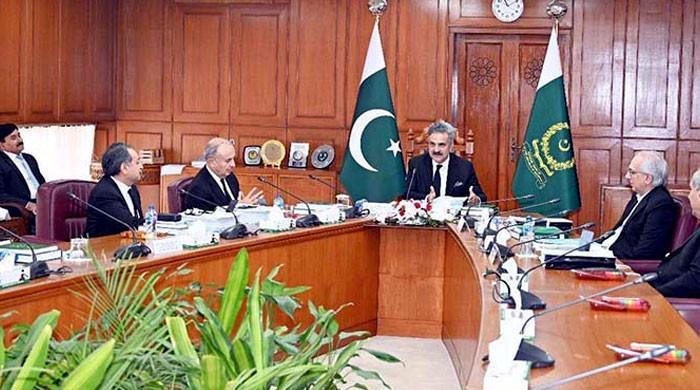- Complaints dismissed by the electoral rig, irregularities.
- The SC statement did not reveal the identities of the plaintiffs.
- PM Shehbaz, the opposition begins conversations to appoint a new CEC.
The Supreme Judicial Council (SJC) has dismissed all complaints filed against the Chief Election Commissioner (CEC) Sikandar Sultan Raja and two members of the Pakistan Electoral Commission (ECP), Nisar Ahmad Durrani and Shah Muhammad Jatoi.
The SJC published its decision on the complaints and published it on the official website of the Supreme Court. The verdict refers to the complaint NOS532/2021, 557/2022 and 563/2022, which were presented against the CEC and two members of the ECP, according to the news.
These complaints were reviewed during the SJC meetings held on November 8, 2024 and December 13, 2024. Complaints, according to reports, presented by Pakistan Tehreek-E-Insaf (PTI), alleged irregularities and rigging during the general elections.
However, the Public Declaration of the Supreme Court did not reveal the identities of the plaintiffs.
This dismissal arrives at a time of greater political tension on the credibility of the electoral process, with the opposition parties often raising concerns about the impartiality of the ECP.
According to the Constitution, only the SJC is authorized to listen and judge cases of alleged misconduct that involves CEC and ECP members. The last ruling effectively exonerates CEC Sikandar Sultan Raja and the two members of all the accusations filed against them.
While Sikandar Sultan Raja has completed his constitutional mandate, under the provisions of the 26th constitutional amendment, he will continue to serve until a successor is designated.
In this sense, Prime Minister Shehbaz Sharif wrote to the opposition leader Omar Ayub on June 4, 2025, initiating consultations for the appointment of a new CEC and two members of the ECP, whose terms have also expired.
According to the constitutional procedure, both the prime minister and the opposition leader must propose three names each.
If a consensus cannot be reached, the problem refers to a parliamentary committee for its final consideration.




